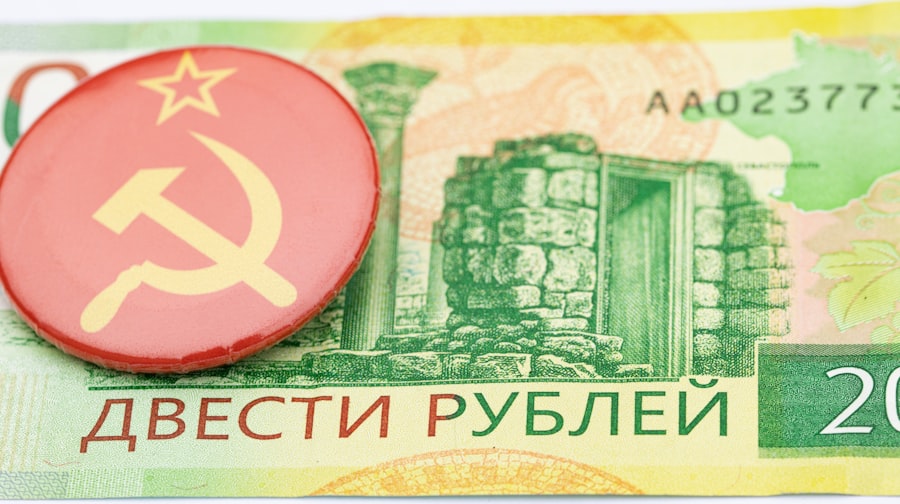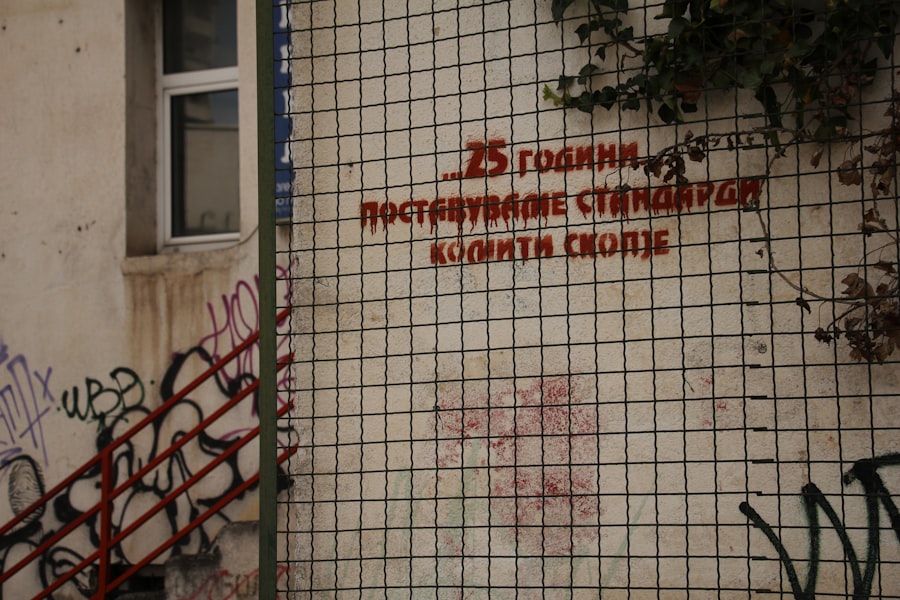Gold smuggling has a long and storied history in Russia, dating back to the imperial era when the allure of gold was intertwined with the nation’s wealth and power. During the 19th century, as the Russian Empire expanded, gold became a symbol of status and prosperity. The discovery of gold deposits in Siberia and the Far East led to a surge in mining activities, but it also opened avenues for illicit trade.
Smugglers took advantage of the vast and often unmonitored borders, transporting gold to neighboring countries where it could be sold for a premium. This underground economy flourished, driven by both the desire for wealth and the oppressive taxation imposed by the state. The tumultuous events of the 20th century, including the Bolshevik Revolution and subsequent civil war, further complicated the landscape of gold smuggling.
The new Soviet regime sought to control all aspects of the economy, including precious metals. However, this did not eliminate smuggling; rather, it transformed it. The black market for gold thrived as individuals sought to escape state control and retain their wealth.
Over the decades, smuggling routes evolved, often involving complex networks that spanned across borders into Europe and Asia.
Key Takeaways
- Gold smuggling in Russia has a long history, intensified by recent sanctions affecting the country’s gold trade.
- Oligarchs play a significant role in orchestrating gold smuggling operations to bypass economic restrictions.
- Smuggling methods include covert transportation and the use of cryptocurrencies to evade detection and sanctions.
- International efforts are underway to combat gold smuggling due to its negative impact on the Russian economy and global markets.
- Gold smuggling is closely linked to money laundering, raising serious ethical and legal concerns worldwide.
How Sanctions Have Impacted Russia’s Gold Trade
In recent years, international sanctions imposed on Russia have had profound effects on its gold trade. Following geopolitical tensions, particularly after the annexation of Crimea in 2014, Western nations targeted Russia’s economy with a series of sanctions aimed at crippling its financial capabilities. Gold, being one of Russia’s most valuable exports, became a focal point in these sanctions.
The restrictions limited Russia’s access to international markets and financial systems, compelling the country to seek alternative methods to trade its gold. As a result, Russia has increasingly turned to non-Western markets, particularly in Asia and the Middle East. Countries like China and India have emerged as significant partners in this regard, providing avenues for Russia to sell its gold without facing the repercussions of Western sanctions.
This shift has not only altered traditional trading patterns but has also led to a rise in clandestine operations aimed at circumventing restrictions. Smugglers have become more active, exploiting loopholes and creating new routes to ensure that Russian gold continues to flow into global markets despite the sanctions.
The Methods Used to Smuggle Gold out of Russia

The methods employed to smuggle gold out of Russia are as varied as they are ingenious. Smugglers have developed a range of tactics to evade detection by authorities, often relying on sophisticated networks that span multiple countries. One common method involves using small aircraft or drones to transport gold across borders, taking advantage of remote areas that lack stringent surveillance.
These aerial routes allow smugglers to bypass customs checks and deliver their cargo directly to buyers in neighboring countries. Another prevalent technique is the use of false documentation and mislabeling shipments. Smugglers often disguise their gold shipments as other commodities, such as jewelry or electronic components, to avoid scrutiny from customs officials.
This method requires a deep understanding of international shipping regulations and an ability to forge documents convincingly. Additionally, some smugglers have resorted to utilizing diplomatic channels or exploiting diplomatic immunity to transport gold without facing inspections. These methods highlight the lengths to which individuals will go to capitalize on the lucrative market for illicit gold.
The Role of Oligarchs in Gold Smuggling
| Metric | Description | Estimated Value | Source/Region |
|---|---|---|---|
| Annual Gold Smuggling Volume | Estimated amount of gold smuggled annually linked to oligarch networks | 150-200 tons | Global (Focus: Russia, India, Middle East) |
| Oligarch Involvement Rate | Percentage of gold smuggling operations with direct or indirect oligarch involvement | 65% | Global |
| Estimated Revenue from Smuggling | Annual revenue generated by oligarch-controlled gold smuggling | 80-100 billion | Global |
| Countries Most Affected | Top countries where oligarch-linked gold smuggling is prevalent | Russia, India, UAE, Turkey | Global |
| Impact on Legal Gold Market | Percentage decrease in legal gold trade due to smuggling activities | 10-15% | Global |
| Law Enforcement Seizures | Annual amount of gold seized linked to oligarch smuggling rings | 5-7 tons | Global |
| Corruption Index Influence | Correlation between corruption levels and oligarch gold smuggling activity | High positive correlation (0.75) | Global |
Oligarchs play a significant role in the landscape of gold smuggling in Russia, often acting as facilitators or financiers of these illicit operations. With their vast wealth and connections, they are well-positioned to navigate the complexities of both legal and illegal markets. Many oligarchs have invested heavily in mining operations across Russia, gaining access to substantial quantities of gold that can be funneled into smuggling networks.
Their influence extends beyond mere financial backing; they often leverage their political connections to protect their interests and evade law enforcement. Moreover, oligarchs have been known to collaborate with organized crime groups, creating a symbiotic relationship that benefits both parties. While oligarchs provide the resources and infrastructure needed for large-scale operations, criminal organizations offer the expertise in smuggling and evasion tactics.
This collaboration has resulted in a highly organized system that not only facilitates gold smuggling but also contributes to broader corruption within the Russian economy. As long as oligarchs continue to wield power and influence, gold smuggling is likely to remain a persistent issue.
The Consequences of Gold Smuggling for the Russian Economy
The consequences of gold smuggling extend far beyond individual transactions; they have significant implications for the Russian economy as a whole. One immediate effect is the loss of tax revenue that would otherwise be generated from legitimate gold sales. As smugglers operate outside the legal framework, the state misses out on crucial funds that could be used for public services and infrastructure development.
This loss exacerbates existing economic challenges faced by Russia, particularly in light of ongoing sanctions and declining foreign investment. Additionally, gold smuggling undermines the integrity of financial systems within Russia. The proliferation of illicit activities creates an environment where corruption thrives, eroding public trust in institutions and governance.
As more individuals engage in smuggling operations, it becomes increasingly difficult for authorities to enforce laws and regulations effectively. This cycle perpetuates economic instability and hampers efforts to modernize and diversify the Russian economy away from its reliance on natural resources.
International Efforts to Combat Russia’s Gold Smuggling

In response to the growing concerns surrounding gold smuggling from Russia, international efforts have intensified to combat this illicit trade. Various countries have implemented stricter regulations regarding the importation of gold, particularly from regions known for smuggling activities. Organizations such as the Financial Action Task Force (FATF) have also taken steps to address money laundering associated with gold trade, urging member states to enhance their monitoring systems and improve cooperation in tracking illicit flows.
Furthermore, international law enforcement agencies have increased collaboration to dismantle smuggling networks operating across borders. Joint operations have been conducted to intercept shipments and apprehend key figures involved in these activities. However, these efforts face significant challenges due to the clandestine nature of smuggling operations and the vast geographical areas involved.
Despite these obstacles, there is a growing recognition that a coordinated global response is essential to effectively combat gold smuggling and its associated criminal activities.
The Impact of Gold Smuggling on Global Markets
Gold smuggling has far-reaching implications for global markets, influencing prices and availability in ways that are often difficult to quantify.
The influx of smuggled gold can lead to oversupply in certain regions, driving down prices and undermining confidence in legitimate sources of gold.
Moreover, the presence of smuggled gold complicates efforts by central banks and financial institutions to manage reserves effectively. As countries grapple with the challenges posed by illicit trade, they may find it increasingly difficult to assess their true gold holdings accurately. This uncertainty can lead to volatility in financial markets as investors react to perceived risks associated with unregulated gold supplies.
Ultimately, gold smuggling not only impacts individual economies but also poses broader risks to global financial stability.
The Connection Between Gold Smuggling and Money Laundering
Gold smuggling is intricately linked with money laundering activities, creating a complex web of illicit finance that poses significant challenges for law enforcement agencies worldwide. Smugglers often use gold as a means to convert illicit gains into legitimate assets, taking advantage of its high value and universal acceptance as a form of currency. This process allows criminals to obscure the origins of their funds while simultaneously profiting from their illegal activities.
The relationship between gold smuggling and money laundering is particularly pronounced in regions where regulatory frameworks are weak or poorly enforced. In such environments, smugglers can operate with relative impunity, facilitating the movement of illicit funds across borders without attracting attention from authorities. As governments strive to combat money laundering, addressing the role of gold smuggling becomes increasingly critical in disrupting these criminal networks and restoring integrity to financial systems.
The Future of Russia’s Gold Smuggling
The future of gold smuggling in Russia remains uncertain but is likely influenced by several key factors. As international sanctions continue to evolve in response to geopolitical developments, smugglers may adapt their strategies accordingly. The ongoing conflict between Russia and Ukraine has already prompted shifts in trade patterns, with smugglers seeking new routes and partners to circumvent restrictions imposed by Western nations.
Additionally, advancements in technology may play a role in shaping the future landscape of gold smuggling. As authorities enhance their monitoring capabilities through digital tools and data analytics, smugglers may be forced to innovate further in their methods to evade detection. This cat-and-mouse dynamic between law enforcement and smugglers will likely persist as both sides seek to outmaneuver one another in an increasingly complex environment.
The Role of Cryptocurrencies in Evading Sanctions
Cryptocurrencies have emerged as a potential tool for evading sanctions related to gold smuggling from Russia. As digital currencies gain popularity worldwide, they offer an alternative means for smugglers to conduct transactions without relying on traditional banking systems that are subject to regulatory scrutiny. By converting gold into cryptocurrencies or using digital assets for transactions, smugglers can obscure their financial activities from authorities.
This shift towards cryptocurrencies presents both opportunities and challenges for smugglers engaged in gold trade. On one hand, digital currencies provide greater anonymity and flexibility; on the other hand, they also attract increased attention from regulators seeking to curb illicit activities associated with cryptocurrencies. As governments grapple with how best to regulate this evolving landscape, smugglers may find themselves navigating an increasingly complex web of legal frameworks designed to combat financial crime.
The Ethical and Legal Implications of Russia’s Gold Smuggling
The ethical and legal implications surrounding Russia’s gold smuggling are profound and multifaceted. On one hand, individuals engaged in smuggling operations often justify their actions by citing economic necessity or resistance against oppressive state control over resources. However, this perspective overlooks the broader consequences of such activities on society as a whole—namely, perpetuating corruption, undermining public trust in institutions, and contributing to economic instability.
Legally speaking, gold smuggling poses significant challenges for law enforcement agencies tasked with enforcing regulations governing precious metals trade. The clandestine nature of these operations makes it difficult for authorities to track illicit flows effectively or hold individuals accountable for their actions. As governments seek to address these challenges through stricter regulations and enhanced cooperation at international levels, they must also grapple with ethical considerations surrounding individual rights versus collective responsibility in combating illicit trade.
In conclusion, the intricate web surrounding gold smuggling in Russia reveals a complex interplay between historical context, economic factors, and evolving technologies that shape this ongoing issue. As international efforts continue to combat these illicit activities while navigating ethical dilemmas inherent within them—one thing remains clear: addressing gold smuggling requires a multifaceted approach that considers not only legal frameworks but also broader societal implications at play within this shadowy realm of finance.
In recent discussions surrounding Russia’s attempts to evade sanctions, the role of gold as a potential tool for circumventing financial restrictions has garnered significant attention. A related article that delves deeper into this topic can be found at this link, where it explores the implications of gold trading in the context of international sanctions and the strategies employed by Russia to maintain its economic stability.
WATCH THIS! The Secret War for Africa’s Gold: How Private Armies Fund Global Conflict
FAQs
What are the Russia sanctions related to gold?
Russia sanctions related to gold are international restrictions imposed by various countries and organizations to limit Russia’s ability to trade gold. These sanctions aim to reduce Russia’s access to global financial markets and resources, particularly in response to geopolitical conflicts or actions deemed unacceptable by the sanctioning bodies.
Why is gold significant in the context of Russia sanctions evasion?
Gold is significant because it is a valuable and highly liquid asset that can be used to bypass traditional financial systems. Russia may use gold transactions to evade sanctions by selling or trading gold through alternative channels, thereby generating revenue despite restrictions on other forms of trade and finance.
How does Russia attempt to evade sanctions using gold?
Russia may attempt to evade sanctions by exporting gold through third countries, using intermediaries, or conducting transactions in cash or non-traditional currencies. These methods help obscure the origin of the gold and avoid detection by sanctioning authorities.
What measures are in place to prevent gold-related sanctions evasion?
Measures include enhanced monitoring of gold trade, stricter customs controls, international cooperation to track suspicious transactions, and the inclusion of gold and precious metals in sanction lists. Financial institutions and trading companies are also required to conduct due diligence to prevent involvement in sanction evasion.
Which countries are involved in enforcing sanctions on Russia’s gold trade?
Countries involved include members of the European Union, the United States, the United Kingdom, Canada, Japan, and other allies who have collectively imposed sanctions on Russia. These countries coordinate efforts to enforce restrictions on gold exports and related financial activities.
What impact do sanctions evasion tactics have on the global gold market?
Sanctions evasion can lead to increased illicit gold trade, price volatility, and challenges in ensuring the transparency and legality of gold transactions. It may also undermine the effectiveness of sanctions and complicate international efforts to maintain market integrity.
Can individuals or companies face penalties for participating in gold sanctions evasion?
Yes, individuals and companies found to be involved in sanctions evasion, including through gold trade, can face significant penalties such as fines, asset freezes, and legal action. Governments and international bodies actively investigate and prosecute violations to uphold sanctions regimes.
How can businesses ensure compliance with Russia-related gold sanctions?
Businesses can ensure compliance by conducting thorough due diligence on trading partners, adhering to export controls, monitoring transactions for suspicious activity, staying updated on sanction regulations, and seeking legal advice when necessary to avoid inadvertent violations.




